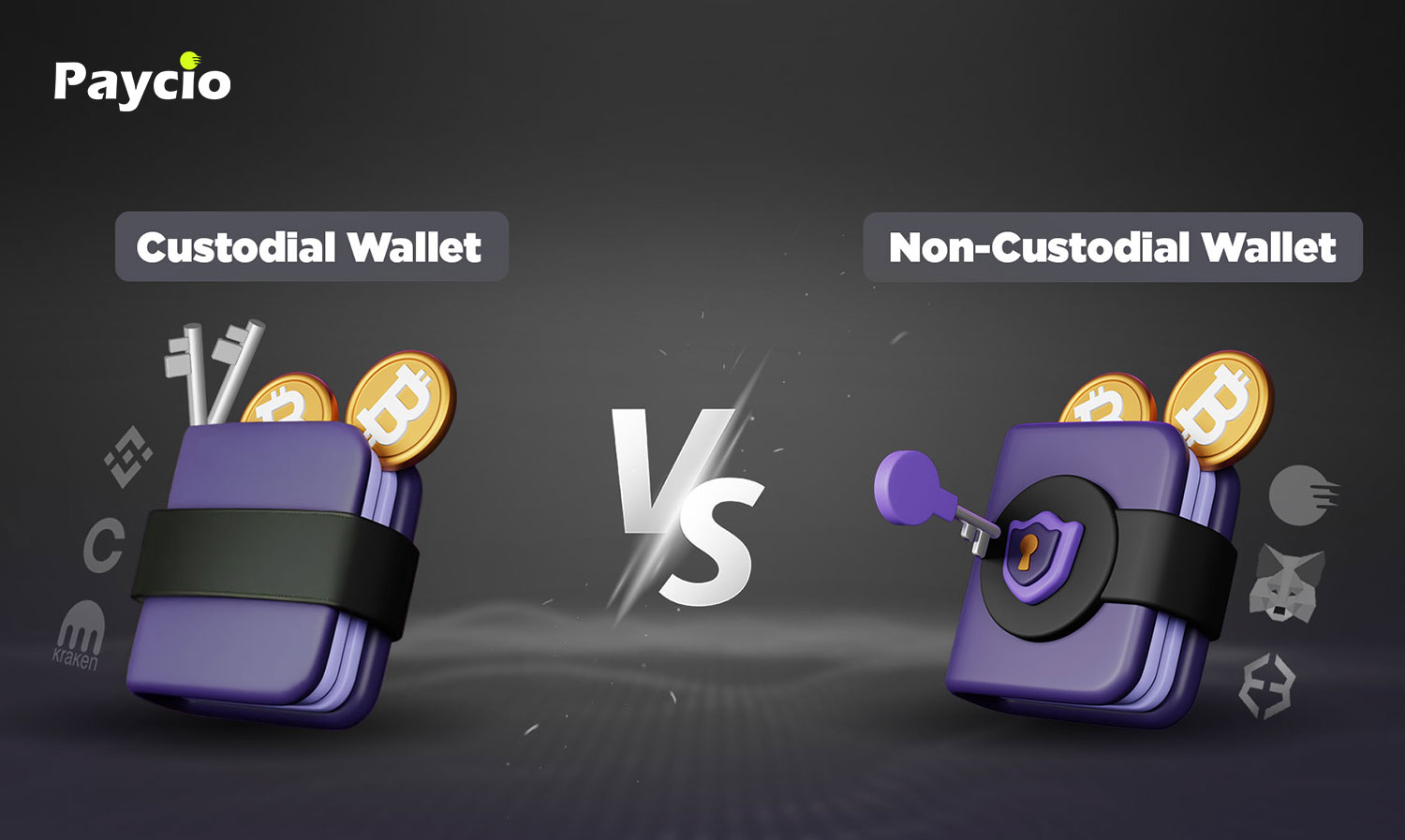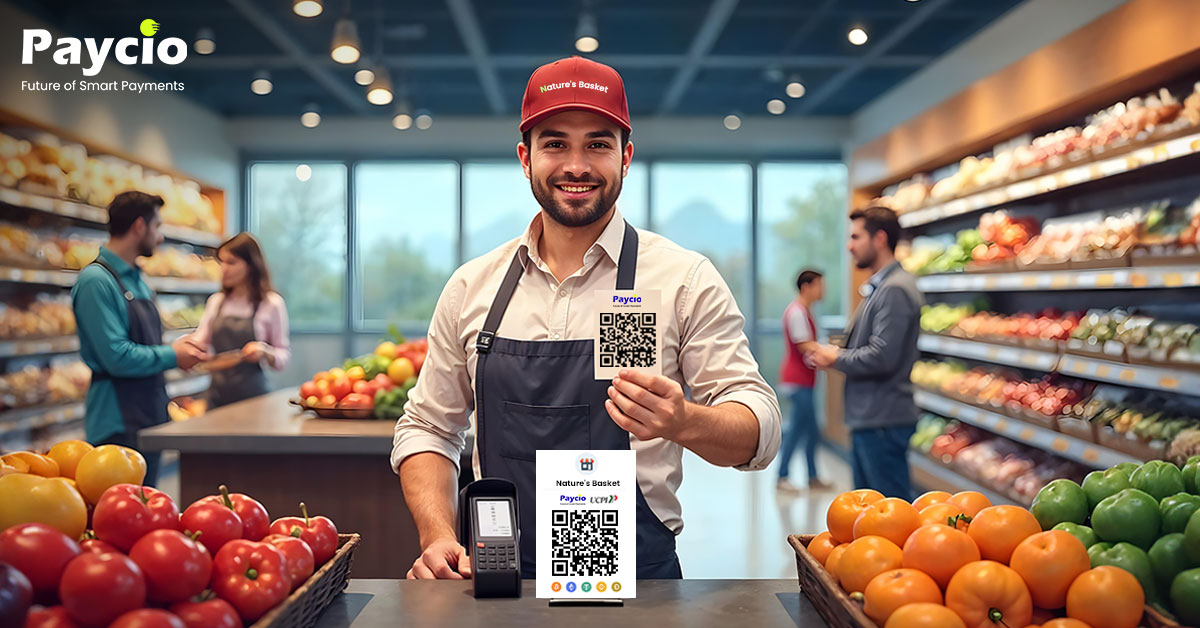
Are you new to the world of crypto and confused about wallet options? Or maybe you’re a seasoned trader looking to understand the nuances of security. Choosing the right crypto wallet is crucial for the security and control of your digital assets. This blog will help you understand the differences between custodial and non-custodial wallets so that you can make an informed decision.
Crypto security is increasingly important these days—Google that! It's not just about protecting your investment; it's about being a responsible participant in the decentralized revolution. The crypto landscape is dynamic, with new threats and opportunities constantly emerging. Staying informed and proactive about security is paramount
Simply put, a custodial wallet is where a third party holds your private keys. Think of it like a bank account – the bank manages your money, and you access it through them. Common examples include wallets provided by centralised exchanges like Coinbase, Binance, or Kraken.
When you create an account on a centralized exchange, the exchange generates and stores the private keys associated with your wallet. This makes it easy for beginners to get started with crypto, as they don’t have to worry about the complexities of key management. You simply log in to your exchange account to access your funds.
Custodial wallets offer a user-friendly experience, abstracting away the technical details of key management. This can be particularly appealing to those who are new to the crypto space and may feel overwhelmed by the responsibility of securing their private keys. However, this convenience comes with trade-offs, as we'll explore further.
Custodial wallets streamline the process of interacting with cryptocurrencies. For instance, if you want to trade Bitcoin for Ethereum, you can easily do so within the exchange's platform, without needing to worry about transferring funds between different wallets. This ease of use has contributed to the widespread adoption of custodial wallets, particularly among newcomers to the crypto space.
The lack of control is a significant drawback of custodial wallets. You are essentially entrusting your assets to a third party, which introduces a level of risk. Exchanges are centralized entities, which makes them attractive targets for hackers. There have been numerous instances of exchanges being hacked, resulting in substantial losses for users.
Mt. Gox experienced a series of hacks between 2011 and 2014, with the 2014 breach being the most devastating. The 2014 incident led to its bankruptcy after the loss of hundreds of thousands of Bitcoins. These breaches underscored the substantial dangers of relying on centralized platforms for crypto custody.
Furthermore, custodial wallets are subject to the policies of the exchange. This means that your account could be frozen, or your access to your funds could be restricted, for various reasons. Without control of your private keys, you are essentially relying on a third party to safeguard your assets. This lack of autonomy can be a major concern for those who value the decentralized nature of cryptocurrencies.
In contrast, a non-custodial wallet gives you complete control of your private keys. You are responsible for the security of your assets. This means that you and only you have access to the keys that control your cryptocurrency. Examples include hardware wallets like Ledger and Trezor, and software wallets like Metamask and Trust Wallet.
With a non-custodial wallet, you are given a "seed phrase" or "recovery phrase," which is a series of words that can be used to recover your wallet if you lose access to it. It is crucial to keep this phrase safe and never share it with anyone.
Non-custodial wallets empower users to take full responsibility for their crypto assets. By managing your private keys, you eliminate the risk of relying on a third party and gain greater control over your funds. However, this increased control comes with increased responsibility.
Non-custodial wallets offer a higher level of security compared to custodial wallets. Since you are in control of your private keys, the risk of exchange hacks or mismanagement is eliminated. This increased security is a major draw for users who prioritize the safety of their assets.
Furthermore, non-custodial wallets often provide enhanced privacy. Since you are not required to provide personal information to a third party, your transactions are not linked to your identity to the same extent as with custodial wallets. This increased privacy aligns with the decentralized ethos of cryptocurrencies.
And that's where Paycio comes in! We're a non-custodial payment gateway, which means we put you in the driver's seat of your crypto. You don’t need to be a seasoned professional to register and use Paycio!
| Feature | Custodial Wallet | Non-Custodial Wallet |
| Key Ownership | Third-Party | User |
| Security Responsibility | Third-Party | User |
| Ease of Use | Generally Easier | Can be Complex |
| Recovery Options | Usually provided by the custodian | Your responsibility |
| Risk of Losing Funds | Risk of third-party failure, hacking | Risk of losing private keys |
| Regulations | Depends on risk management, transparency, liability, and AML standards. | Varies depending on the jurisdiction |
This comparison highlights the fundamental trade-offs between custodial and non-custodial wallets. Custodial wallets prioritize ease of use and convenience, while non-custodial wallets prioritize security and control. The best choice for you will depend on your individual needs and priorities.
Security is paramount in the financial domain, especially when it comes to cryptocurrency. There are two types of wallets to consider: custodial and non-custodial, each having their security considerations.
While custodial wallets offer ease, they present some risks. Exchanges are attractive targets for hackers, and there have been cases where exchanges were hacked, leading to users losing their funds. It’s crucial to use a reliable exchange with strong security measures.
Custodial wallets rely on some of the following security measures:
Two-factory Authentication (2FA): This adds an extra layer of security, such as a code from a mobile app, in addition to your password.
Cold Storage: Storing a significant portion of the exchange’s assets offline, making them inaccessible to hackers.
Encryption: Exchanges also use encryption, such as passwords and private keys.
Regular Security Audits: Reputable exchanges undergo regular security audits by third-party firms to identify and address potential vulnerabilities.
Before opting for a custodial wallet, research exchanges that offer a strong record of security and transparency, along with a good reputation.
By offering greater security, they also place the onus of greater responsibility on the user. It’s essential to keep your private keys and recovery phrases safe. With non-custodial wallets, you are your bank, and responsible for implementing your security measure
Strong Passwords: Create strong, unique passwords for your wallet and any associated accounts.
Safe Recovery Phrase Storage: Keep it offline in a secure location. Never store it on your computer or phone.
Hardware Wallets: Consider using a hardware wallet, which stores your private keys offline and provides and offers added security.
Be Wary of Phishing Scams: Be cautious of emails, messages, or websites that ask for your private keys/ recovery phrase.
The crypto space is unfortunately rife with security threats, and it is your duty to be aware of them to protect your assets.
Phishing: Scammers trick users into revealing their sensitive information through fake emails, messages, or websites.
Malware: Malicious software steal private keys or gain access to crypto wallets.
Hacking: Hackers may attempt to break into exchanges or wallets, either by exploiting software vulnerabilities or using social engineering.
Social Engineering: Private keys or sensitive information is revealed by manipulating individuals.
51% Attacks: A situation where a malicious actor gains control of a majority of the network’s computing power, to manipulate transactions.
Staying informed about these threats and implementing appropriate security measures is crucial.
A Virtual Private Network (VPN) encrypts your internet connection, masking your IP address, making it difficult to monitor your online activities.
They provide an added layer of security by storing your private keys offline.
Ensure wallet software and operating system are regularly updated with the latest security patches.
Avoid clicking on suspicious links or providing private keys/ recovery phrases to anyone.
Two-factor authentication adds an extra layer of security.
Avoid using the same password for multiple accounts.These security practices are fundamental for protecting your crypto assets.
Choosing the right wallet depends on your needs and preferences. Consider the following factors:
Experience Level: If you’re new to crypto, a custodial wallet might be easier to start with. For those more experienced and prioritised security, a non-custodial wallet is recommended.
Trading Frequency: If you trade frequently, a custodial wallet is more convenient. However, if you’re a long-term holder, a non-custodial wallet is preferred.
Security Needs: If security is your priority, a non-custodial wallet is the way to go.
Amount of Crypto Held: If you’re holding a large amount of crypto, it’s recommended to use a non-custodial wallet.
At Paycio, we recommend non-custodial solutions for maximum security and control. This approach empowers users and aligns with the principles of decentralization.
Paycio is a crypto payment gateway application that focuses on user control and security. Our non-custodial platform ensures that you are always in control of your private keys and assets. With the aim to simplify and secure crypto transactions, Paycio empowers users to participate in the decentralized economy. By staying committed to non-custodial solutions, Paycio supports the principles of decentralization and gives users more control over their finances while promoting the adoption of cryptocurrencies and financial inclusion.
There is no one-size-fits-all answer. While choosing a wallet, consider your personal risk tolerance, technical expertise, and how you intend to use your crypto. For beginners trading occasionally, a user-friendly non-custodial mobile wallet can be ideal. However, it’s crucial to choose a reputable wallet like Paycio. The application’s commitment to non-custodial solutions is driven by a desire to provide users with the highest level of security and control over their assets.

A comprehensive guide for merchants and business owners on how to integrate and accept cryptocurrency as one of the payment methods.





